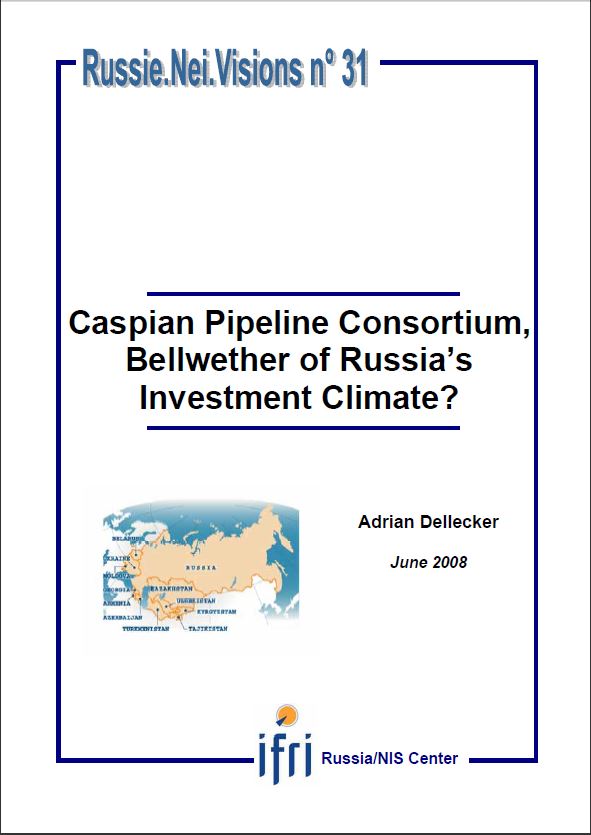Caspian Pipeline Consortium, Bellwether of Russia's Investment Climate?

The Caspian Pipeline Consortium (CPC), a shipper-owned oil pipeline carrying Caspian oil to Russia's Black Sea port of Novorossyisk, remains to this day the only oil export pipeline on Russian territory that is not under the control of the state company Transneft. Completed in 2001, the CPC was, from the start, the product of a fragile balance of power between states eager to maintain control of hydrocarbon flows and private companies able to finance the necessary infrastructure. Despite its economic success, the future of the CPC currently hinges on a shareholding dispute pitting Russia against Western private shareholders. This essay places the CPC dossier in the broader context of Russia's investment climate and argues that the dispute's dynamic is an important bellwether of the Russian energy policy.
Download the full analysis
This page contains only a summary of our work. If you would like to have access to all the information from our research on the subject, you can download the full version in PDF format.
Caspian Pipeline Consortium, Bellwether of Russia's Investment Climate?
Related centers and programs
Discover our other research centers and programsFind out more
Discover all our analysesThe Caspian Sea as an Emerging Energy Hub : Potentials and Limitations
This report analyzes the prospects of the Caspian Sea region — and its key actors except for Russia and Iran — becoming an important energy hub serving the needs of the European Union (EU).
The European Union's Strategic Test in Georgia
The political crisis brewing in Georgia is of an existential nature for the country. What is at stake is Georgia's future as a democratic and sovereign European nation (EU).
Commanders of Putin's Long War: Purged, Reshuffled and Disgruntled
The trend of reshuffling the Russian top military command in the course of a fast-evolving and far from successful war has progressed unevenly both across the Armed Forces’ structures and in time. The rationale for and timing of the abrupt cadre decisions made by Commander-in-Chief Putin often defy logical explanation, and the rare official clarifications are no more informative than the usual information blackout.
Russian Military Manpower After Two and a Half Years of War in Ukraine
In addition to a military victory in Ukraine, the Russian leadership is planning to build up sizable troop formations for a possible conflict with NATO in the Baltic region and the Kola Peninsula. In particular, current plans aim for the military manpower to grow by about 350,000, reaching a total of 1.5 million soldiers and commanders. In the context of the current conflict in Ukraine, this cannot be accomplished without a new wave of mass mobilization.









